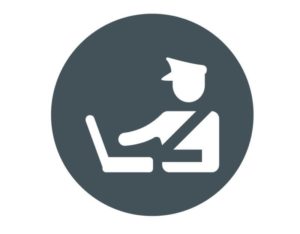 The Department of Homeland Security has issued its Privacy Impact Assessment (PIA) for the second phase of the Traveler Verification Service (TVS), the biometric border screening program being developed by the US Customs and Border Protection Agency and the Transportation Security Administration.
The Department of Homeland Security has issued its Privacy Impact Assessment (PIA) for the second phase of the Traveler Verification Service (TVS), the biometric border screening program being developed by the US Customs and Border Protection Agency and the Transportation Security Administration.
The program revolves around the biometric identification of travelers. As it stands in Phase II, travelers seeking to board international outbound flights are directed to a CBP camera, which scans their faces and then matches them against a flight manifest. Once the traveler’s identity is confirmed by the facial recognition system, their information is transmitted to a tablet device operated by a TSA officer, who is then able to wave the passenger through to the appropriate security screening lane.
Those individuals whose faces are not matched, meanwhile, are subject to further scrutiny from TSA officials as per the organization’s security standards. An alert will also be sent to a mobile application used by a CBP officer, who can then take appropriate action with respect to further scrutiny of the traveler or detainment.
In its Privacy Impact Assessment for this phase of the TVS, the DHS notes various ways in which it has sought to comply with certain privacy protections. To promote transparency, the CBP and TSA are posting signs and tear sheets about the TVS at airports; to minimize data retention, travelers’ biometric and biographic data are deleted from TSA devices no later than two minutes after their scan, while the CBP can only retain citizens’ photos for up to 14 days; to ensure accuracy, the CBP requires a True Acceptance Rate of at least 96 percent from its facial recognition vendors. And travelers are still offered the option of opting out from the TVS and proceeding with the TSA’s standard procedures.
For organizations like the American Civil Liberties Union, of course, none of this may be adequate, with the organization having already objected to biometric screening in principle as an unwanted increase in securitization that by its nature reduces privacy. But the DHS is at the very least fulfilling its duty to assess how this program is impacting the privacy of travelers.
Source: DHS
–
August 17, 2018 – by Alex Perala







Follow Us